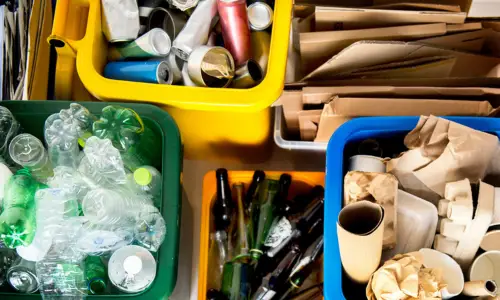Lancaster University researchers investigating consumer attitudes and behaviours around plastic food packaging have found UK households are ‘wishcycling’ rather than recycling – and say it’s a problem that everyone – government, food producers, waste management and residents – has to solve.
Wishcycling – the act of putting packaging in recycling bins and hoping for the best, rather than knowing it’s recyclable – is something households are doing due to confusing product labels and differing recycling facilities around the country, experts warn.
The academics behind Lancaster University’s Plastic Packaging in People’s Lives (PPiPL) project have been working hand-in-hand with supermarkets, businesses, charities and waste management companies for the last 3.5 years to explore the ins and outs of how the UK thinks and acts when it comes to plastic food packaging.
Today, a suite of reports is published to highlight their findings, offering recommendations to help reduce the UK’s plastic usage and contribute towards the UK’s Plastics Pact goals. A total of 552 people and 91 organisations were involved in the research via interviews with consumers and households, workshops, supply chain companies and waste management facility visits.
We have studied the plastic packaging cycle – from the moment plastic is made through to how it is used by suppliers, experienced by customers and then treated in the waste process, to get a full picture of the UK’s attitudes and behaviours towards plastic food packaging,” Lancaster University’s Professor Maria Piacentini, Co-Principal Investigator of the PPiPL project explains.
“Our results suggest some UK households really care about the planet and try their best, but reducing food waste in their homes is as much a priority as minimising plastic – and can sometimes trump concerns over packaging.
“We also find a reluctance to wash and recycle some packaging through fears of contamination – for instance from raw meat or fish packets. Residents are more likely to throw this sort of recyclable waste into the normal bin or contaminate their household recycling by not washing the containers, which can cause far greater contamination further on in the recycling process. This is important for policymakers to understand if we are to achieve the ambitions set out in the UK Plastics Pact.”
The study also finds people tend to guess whether food packaging is recyclable from how the packet feels, rather than studying the container to determine whether it is recyclable and accepted by their local council due to confusion around packaging labels and symbols.
“The inconsistency in waste collection services across UK councils is still complicating matters, as we can encounter different waste and recycling facilities at home, work and when we are out and about,” Dr Alison Stowell, co-principal investigator for the PPiPL project adds. “If the UK fulfils its ambitions for a ‘simpler, common-sense approach’ to recycling through standardisation of bin collection services, and food producers worked with On-Pack Recycling Label (OPRL) to create uniform labelling, recycling could be a lot less confusing and more effective for us all.”







